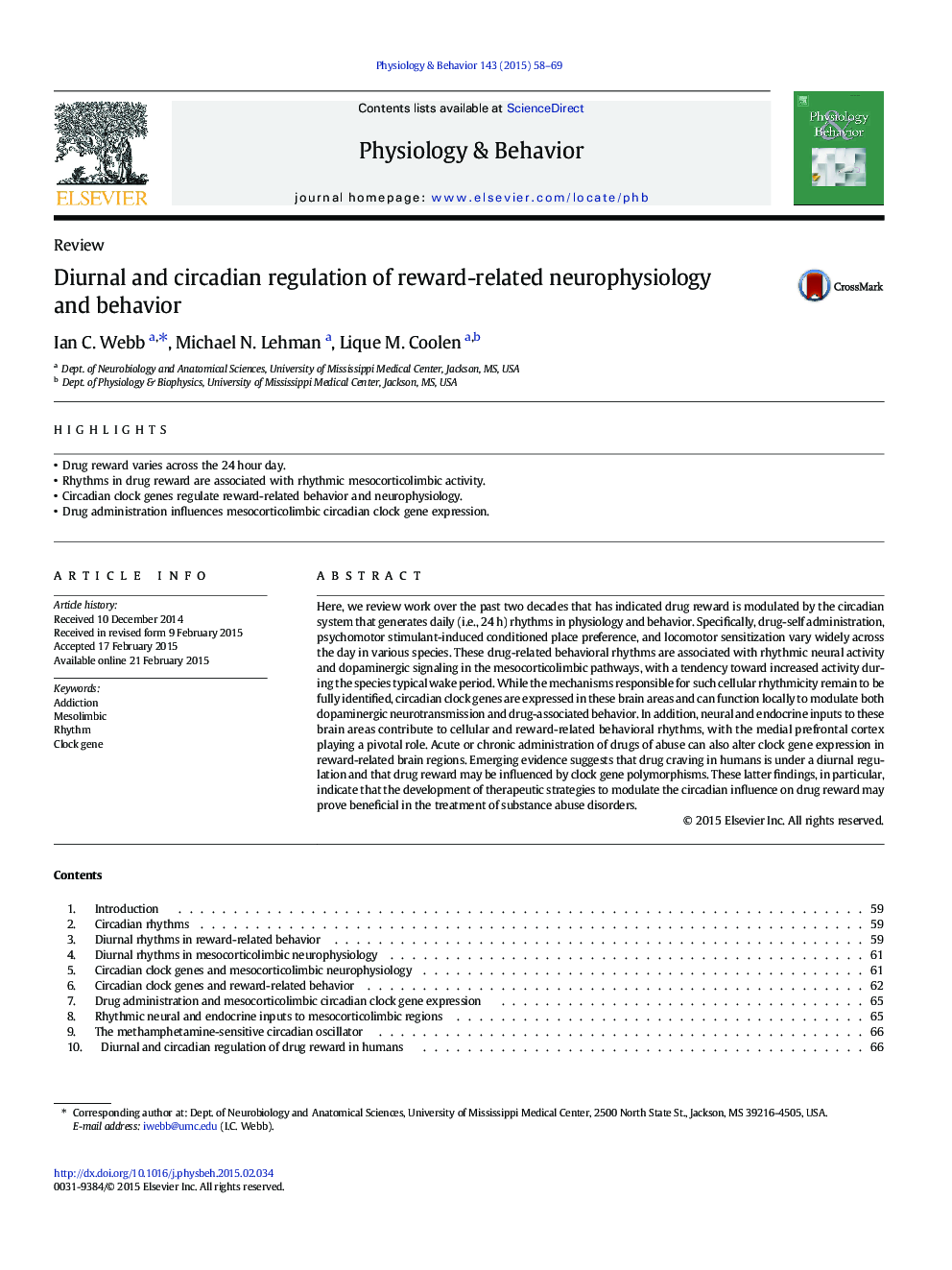| کد مقاله | کد نشریه | سال انتشار | مقاله انگلیسی | نسخه تمام متن |
|---|---|---|---|---|
| 5923702 | 1571174 | 2015 | 12 صفحه PDF | دانلود رایگان |
عنوان انگلیسی مقاله ISI
Diurnal and circadian regulation of reward-related neurophysiology and behavior
ترجمه فارسی عنوان
تنظیم روزانه و روزانه از نوروفیزیولوژی مرتبط با پاداش و رفتار
دانلود مقاله + سفارش ترجمه
دانلود مقاله ISI انگلیسی
رایگان برای ایرانیان
موضوعات مرتبط
علوم زیستی و بیوفناوری
بیوشیمی، ژنتیک و زیست شناسی مولکولی
فیزیولوژی
چکیده انگلیسی
Here, we review work over the past two decades that has indicated drug reward is modulated by the circadian system that generates daily (i.e., 24Â h) rhythms in physiology and behavior. Specifically, drug-self administration, psychomotor stimulant-induced conditioned place preference, and locomotor sensitization vary widely across the day in various species. These drug-related behavioral rhythms are associated with rhythmic neural activity and dopaminergic signaling in the mesocorticolimbic pathways, with a tendency toward increased activity during the species typical wake period. While the mechanisms responsible for such cellular rhythmicity remain to be fully identified, circadian clock genes are expressed in these brain areas and can function locally to modulate both dopaminergic neurotransmission and drug-associated behavior. In addition, neural and endocrine inputs to these brain areas contribute to cellular and reward-related behavioral rhythms, with the medial prefrontal cortex playing a pivotal role. Acute or chronic administration of drugs of abuse can also alter clock gene expression in reward-related brain regions. Emerging evidence suggests that drug craving in humans is under a diurnal regulation and that drug reward may be influenced by clock gene polymorphisms. These latter findings, in particular, indicate that the development of therapeutic strategies to modulate the circadian influence on drug reward may prove beneficial in the treatment of substance abuse disorders.
ناشر
Database: Elsevier - ScienceDirect (ساینس دایرکت)
Journal: Physiology & Behavior - Volume 143, 1 May 2015, Pages 58-69
Journal: Physiology & Behavior - Volume 143, 1 May 2015, Pages 58-69
نویسندگان
Ian C. Webb, Michael N. Lehman, Lique M. Coolen,
